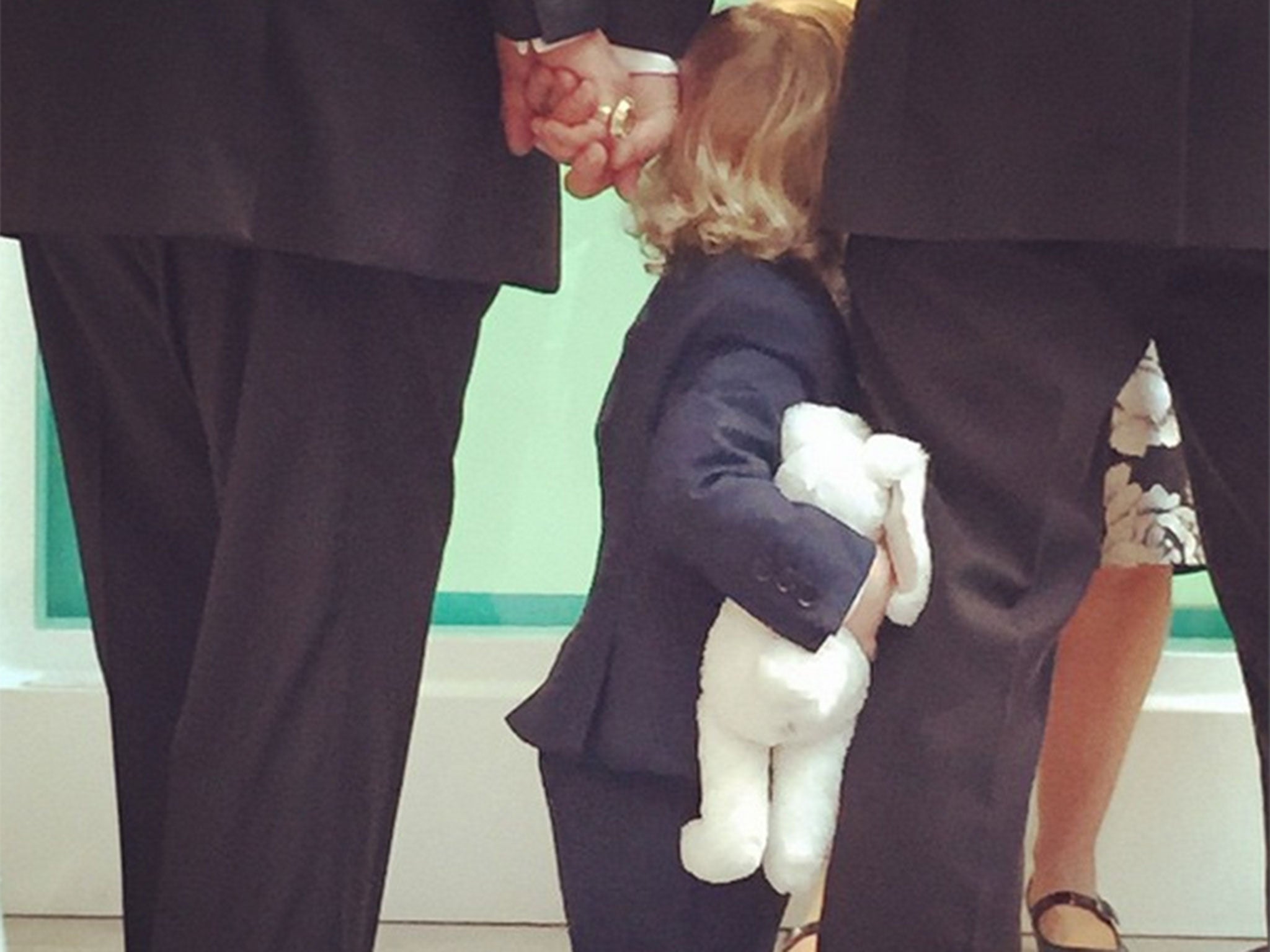Elton John's touchy-feely parenting does nothing for me - bring back the silent dads of the '70s
I’m not entirely certain that being constantly informed you are the apple of daddy’s eye is helpful


Your support helps us to tell the story
From reproductive rights to climate change to Big Tech, The Independent is on the ground when the story is developing. Whether it's investigating the financials of Elon Musk's pro-Trump PAC or producing our latest documentary, 'The A Word', which shines a light on the American women fighting for reproductive rights, we know how important it is to parse out the facts from the messaging.
At such a critical moment in US history, we need reporters on the ground. Your donation allows us to keep sending journalists to speak to both sides of the story.
The Independent is trusted by Americans across the entire political spectrum. And unlike many other quality news outlets, we choose not to lock Americans out of our reporting and analysis with paywalls. We believe quality journalism should be available to everyone, paid for by those who can afford it.
Your support makes all the difference.I am a terrific fan of Elton John and David Furnish’s family unit: Zachary, four, and Elijah, two. They always seem to be having such fun. I mean, serious joy. Yes, I’m sure the multiple palatial residences and summering in St Tropez help – it would certainly cheer me up. However, there is a gorgeous sense, whenever a photo crops up of Elton’s clan leaping into a people carrier, of the life-transforming properties of later-life parenting.
A starry, perfect, solipsistic life has been merrily besmirched by scribbled-upon wallpaper, laminated kids’ menus, and the constant threat of nits, night-terrors and impetigo. Both dads clearly could not be happier. “When we had our own children,” Elton told the Oxford Union this weekend, “I never stopped telling them I loved them, and they never stop telling me they love me.”
Nevertheless, this touchy-feely open-hearted intra-family adoration is a curious thing to folk like me, who did not experience it first hand. Millions of Britons must find it as strange. I am sure my parents love me, and that they loved me dearly when I was a child in the 1970s, but vocalising this love as a daily, cloying mantra was not de rigueur.
I thought this over the weekend as David Beckham showed off his latest tattoo – a stick figure penned by his four-year-old daughter, now inked on to his hand, adding to the raggedy scrapbook of fertility which makes up his outer epidermis. In the not too distant past, fathers generally only daubed their brood’s names on to their body during downtime in prison. Nowadays it feels odd, even hard-hearted, not to.
But I’m not entirely certain that being constantly informed as a pre-teen that you’re the apple of daddy’s eye and his extra-special mega-talented sunbeam is particularly helpful. There was something to be said for the less obvious, arm’s length love of the yesteryear father who showed affection via mended roller-skates, finding the occasional magical 20 pence piece behind your ear and appearing on birthday cards as “and your Dad” (signed in your mam’s handwriting) with one abstemious kiss.
Elton would probably disagree with me on this. But then Elton went so far this weekend as to blame his father’s lack of affection for his well-documented booze and cocaine problem. This, I take with a pinch of salt.
I have heard every excuse imaginable for why showbiz and media people have a cocaine dealer on speed dial. The actual reason is, human beings take cocaine because cocaine feels absolutely brilliant, precisely until the point where it very much does not, when everything about the wretched real world will be waiting patiently for one’s return. The deadlines, the existential woe, the creative block and the performance anxiety – all still there, yet now with a sore nose and drug-induced paranoia.
Elton John took cocaine as a newly made multimillionaire, during the heyday of Seventies and Eighties stadium rock. Those are some pretty moreish cocaine sniffing conditions. His dad cannot be to blame for every line.
The silent, non-huggy dad of yesteryear had his wonky charms. From 1974 to 1986, some of the most meaningful interactions I had with my father included being told to shut the front door, being dispatched to the local newsagent for a paper and being told to shut up. In fact, being told to shut up five or six times a day was an integral and character-forming part of the pre-kissywissy childhood. That woman you follow on Facebook, for masochistic reasons, who posts 77 times a day, mostly whining about her parking permit problems, was not told to shut up nearly enough as a child.
The rise of the lovey-dovey ever-fascinated daddy explains much about why today’s young people are such attention addicts. Here is the generation whose fathers experienced the first flourishes of paternity rights, scheduled bonding and peer pressure to look riveted by ball ponds and Tarzan swings. Oddly, their children can’t survive more than seven minutes without the warm endorphin rush of Instagram validation. “Look I’m in a bikini!” they cry. “And now I’m cuddling a puppy! Like me! Like me! Like me!” For similar reasons, many of these children never truly grow up and move out, preferring to lurk in their parents’ spare bedroom until the age of 32, horrified by the idea of sharing a rotting, damp rental hellhole in a dull or dangerous area, when they can be at daddy’s, “saving up for a home”. (Translation: waiting for daddy’s daddy to die so they can have a house deposit. Or ogling Tinder waiting for a daddy substitute to appear so they can get their hands on daddy’s white wedding fund).
See also, touchy-feely daddy’s influence upon modern student life: the frankly hilarious rise of the “safe space”. This is a phrase evoked by today’s teenagers to request the removal of anyone who disagrees with them on the grounds that they are scaring them.
They actually say this with a straight face – “I demand a safe space” – somehow overlooking that a “safe space” sounds exactly like a vestibule at the back of a Montessori nursery where you might place a sensitive toddler with warm milk because it can’t face the intense pressure of sharing Play-Doh. So all said, good luck Elton John. If anyone can make extreme lovey-dovey parenting work, you can.
And for anyone else deeply upset by this column, don’t worry – I’m sure daddy loves you very, very much.
Join our commenting forum
Join thought-provoking conversations, follow other Independent readers and see their replies
Comments